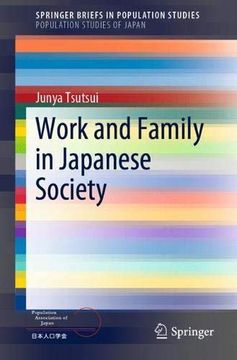Compartir
Work and Family in Japanese Society (Springerbriefs in Population Studies) (en Inglés)
Junya Tsutsui (Autor)
·
Springer
· Tapa Blanda
Work and Family in Japanese Society (Springerbriefs in Population Studies) (en Inglés) - Junya Tsutsui
$ 414.548
$ 637.767
Ahorras: $ 223.218
Elige la lista en la que quieres agregar tu producto o crea una nueva lista
✓ Producto agregado correctamente a la lista de deseos.
Ir a Mis Listas
Origen: Estados Unidos
(Costos de importación incluídos en el precio)
Se enviará desde nuestra bodega entre el
Jueves 25 de Julio y el
Lunes 05 de Agosto.
Lo recibirás en cualquier lugar de Colombia entre 1 y 5 días hábiles luego del envío.
Reseña del libro "Work and Family in Japanese Society (Springerbriefs in Population Studies) (en Inglés)"
This book provides a systematic framework for interpreting the fertility decline in Japan. It situates the change in fertility rates in a broader context, such as family life and working customs. The basic argument it puts forward is that Japan has failed to establish a “dual-earner” society: women still face the trade-off between having a career or starting a family, which has led to an extremely low fertility rate in Japanese society. Further to this rather common explanation, which could also be applied to other low-fertility societies such as Germany and Italy, the author presents an original view. Japan has had its own momentum in holding on to its strong “men as breadwinners and women as housekeepers” model by creating a unique regime, namely, a Japanese model of a welfare society. This regime places special emphasis on the welfare provided by private companies and family members instead of by the government. Private firms are expected to secure men’s jobs and income to the greatest extent, taking advantage of Japanese employment customs. On the other hand, women are expected to provide care for their family members. The book argues that the familialist orientation is still dominant in Japan and is repeatedly reinforced in the policy context.
- 0% (0)
- 0% (0)
- 0% (0)
- 0% (0)
- 0% (0)
Todos los libros de nuestro catálogo son Originales.
El libro está escrito en Inglés.
La encuadernación de esta edición es Tapa Blanda.
✓ Producto agregado correctamente al carro, Ir a Pagar.

